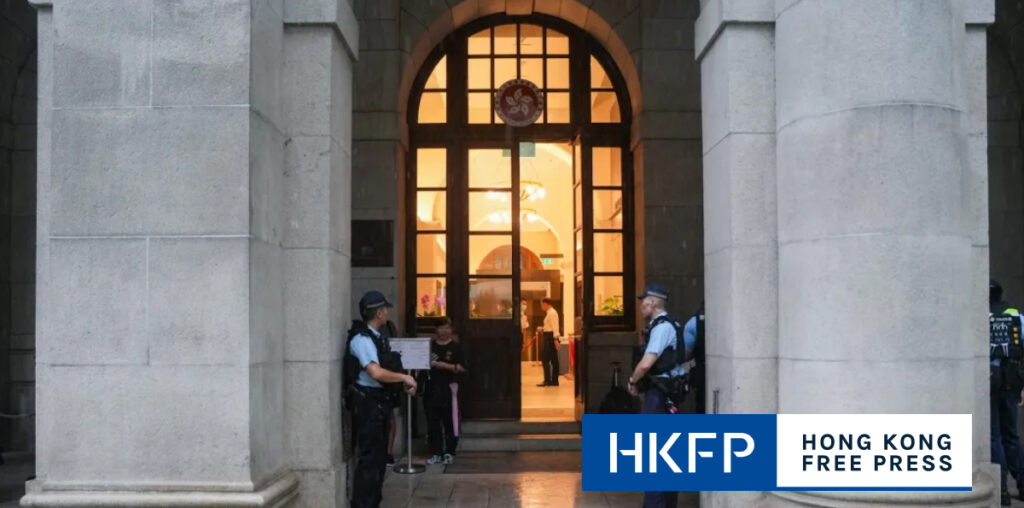Hong Kong national security cases will be barred from being heard remotely under a bill to introduce court proceedings with real-time remote communication link-ups.
Gazetted by the government on Friday, the Courts (Remote Hearing) Bill will also exclude criminal trials and juvenile court proceedings from remote hearings. The first reading of the bill at the Legislative Council (LegCo) has been scheduled for next Wednesday.

“In response to rising expectations from court users and the community in recent years, the Judiciary has been taking proactive measures in making greater use of technology in enhancing the efficiency of court operations,” a government spokesperson said on Friday.
The court will employ remote hearings “only if it is fair and just to do so, having regard to a host of relevant considerations,” the statement read.
The bill “expressly states that proceedings of cases concerning national security (NS proceedings) cannot be conducted remotely.”
“The Judiciary notes the Government’s concern about potential risks to national security if remote hearing is conducted in a [national security] proceeding,” according to a LegCo brief.
Remote mediums include phone calls or video-conferencing platforms, and any other real-time communication facility as designated by the Chief Justice, the brief adds.
The government had earlier advised against remote hearings to prevent national security risks arising from harassment against witnesses giving evidence outside Hong Kong.
Excluded cases, new offences
Criminal trials and hearings before the Juvenile Court will also be barred from being conducted remotely, though criminal proceedings including bail proceedings, pre-trial reviews, and court mentions will be permitted “if it is in the interests of justice to do so.”
According to a LegCo document, the Judiciary has had a “positive” experience conducting over 2,000 remote hearings.


The bill also states that the broadcast of an open proceeding must be accessible by the public. The Judiciary last year proposed a registration requirement that was questioned by the Law Society and lawmaker Doreen Kong, who is also a solicitor.
The bill will also introduce new offences to impose a maximum of five years in jail and a HK$100,000 fine against those who record, publish, or broadcast proceedings without permission from the court.
The proposed offence was raised during a public consultation for the bill two years ago.
“Key stakeholders including the Hong Kong Bar Association, the Law Society of Hong Kong and law enforcement agencies have also indicated support for the proposed legislation on remote hearings,” according to the Friday statement.
Under the legislation, the court can decide on its own or upon request from a party to a proceeding to hold the hearing remotely.


The proposed legislation will also empower the Chief Justice to order remote hearings and to determine which proceedings are to be excluded.
The legislation seeks to “provide a clear legal basis” for judges to order remote hearings at various court levels, according to a LegCo document.
Separate laws relating to evidence, procedure, contempt of court, and perjury will remain applicable to anyone who attends a remote hearing outside Hong Kong.
If a participant misses a remote hearing at the scheduled date, time, and virtual location, they will face the same consequences as missing an in-person hearing.
Support HKFP | Policies & Ethics | Error/typo? | Contact Us | Newsletter | Transparency & Annual Report | Apps
Help safeguard press freedom & keep HKFP free for all readers by supporting our team



